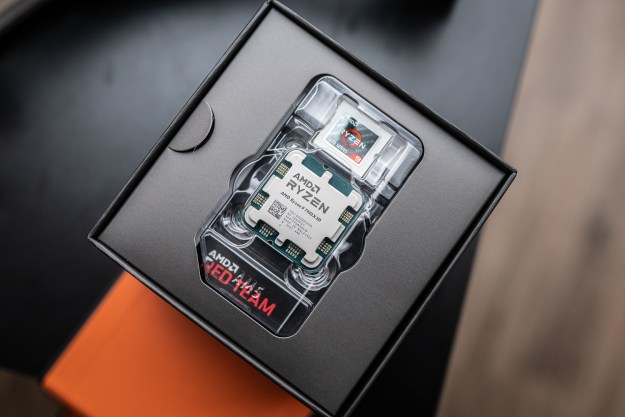Engineering samples of the upcoming Intel Raptor Lake Core i7-13700K and Core i5-13600K processors have been thoroughly tested, and the results appeared on Bilibili, a Chinese social media platform.
Comparing the next-gen CPUs to their current-gen counterparts reveals massive performance gains, with some of the benchmarks returning up to 64% higher scores for Raptor Lake. Unfortunately, these performance gains come at a price.
i5-13600K/i7-13700K QS Testedhttps://t.co/E1b17AEIfO pic.twitter.com/bJmIP2Oo7f
— HXL (@9550pro) July 28, 2022
Today’s round of juicy Raptor Lake leaks comes from ExtremePlayer on Bilibili, who posted a new video featuring the upcoming CPUs. ExtremePlayer previously reviewed the flagship Core i9-13900K, and now, he turned to both reviewing and comparing the two mid-range models from the Raptor Lake-S lineup.
The processors, much like Intel Alder Lake, feature a hybrid core configuration with a mix of Raptor Cove performance cores and Gracemont efficiency cores. The Core i7-13700K is said to come with 16 cores (eight P-cores and 8 E-cores) and 24 threads, while the Core i5-13600K serves up 14 cores (6 P-cores, 8 E-cores) and 20 threads. Intel Raptor Lake is rumored to deliver some massive clock speeds, with boost clocks said to hit above 5.8GHz, but that’s on the Core i9-13900K — the Core i7-13700K is expected to reach a maximum of 5.4GHz. Unfortunately, these engineering samples haven’t managed to hit quite such high numbers — but they still outperformed their predecessors by a large margin.
The Intel Core i7-13700K that was tested in the video clocked at up to 5.3GHz, while the Core i5-13600K maxed out at 5.1GHz. Both models were tested twice, once with DR4-3600 memory, and then again with DDR5-5200, to compare the effect of DDR5 RAM on the performance of Intel’s next-gen CPUs. Recent benchmarks showed that Intel Raptor Lake might finally make DDR5 memory shine, and today’s leak only further serves to prove that.
Various benchmarks were used for the purpose of testing, but most of them returned similar results. The Core i7-13700K seems to offer an up to 10% performance boost in single-threaded operations, but in a multi-core setting, the gains are really intense. In general, you can observe an improvement of roughly 30-35%, but some of the tests delivered a performance gain of up to 64% when the Core i7-13700K was compared to the current-gen Core i7-12700KF. In a 7-Zip test, the victory was even greater, with a staggering 164.84% boost over the Alder Lake processor.
The lower-level Core i5-13600K also managed to leave its predecessor in the dust, with smaller single-threaded gains (around five to eight percent), but, once again, massive numbers in multi-threaded operations. On average, the Core i5-13600K seems to be up to 40% better than the Core i5-12600K when tested with DDR5 RAM.

These benchmarks, once again, prove that DDR5 RAM might finally get its chance to shine. So far, DDR5 adoption has been rather slow due to how overpriced these memory kits have been. Now, with these performance improvements showcased by Intel Raptor Lake, and with AMD Zen 4 exclusively using DDR5, we can bet that the market will soon be flooded with some of the best DDR5 RAM.
The alleged performance boost comes at a steep cost to power consumption, as pointed out by VideoCardz. The Intel Core i7-13700K reached a power consumption of up to 244 watts — which is really high, especially when you compare it to the Alder Lake Core i7-12700K with 188 watts. The Core i5-13600K also saw a similar increase — 178 watts versus 148 watts.
While the results are exciting, it’s still early days. We’ve been seeing more and more Intel Raptor Lake benchmark results cropping up recently, but until the finished product makes it to the hands of early reviewers, we won’t know its full potential. With that said, and with a healthy helping of skepticism, it certainly seems like Intel’s 13th-gen CPUs might turn out to be real multi-core beasts.
Editors' Recommendations
- The only Intel CPU you should buy is over a year old
- I tested Intel’s Core i5-14600K against its cheaper sibling. Don’t waste your money
- Intel’s Raptor Lake refresh prices have leaked, and hikes are on the way
- Intel Core i5 vs. i7: Which CPU is right for you in 2023?
- Yet another disappointment about Intel’s next chips may be true




